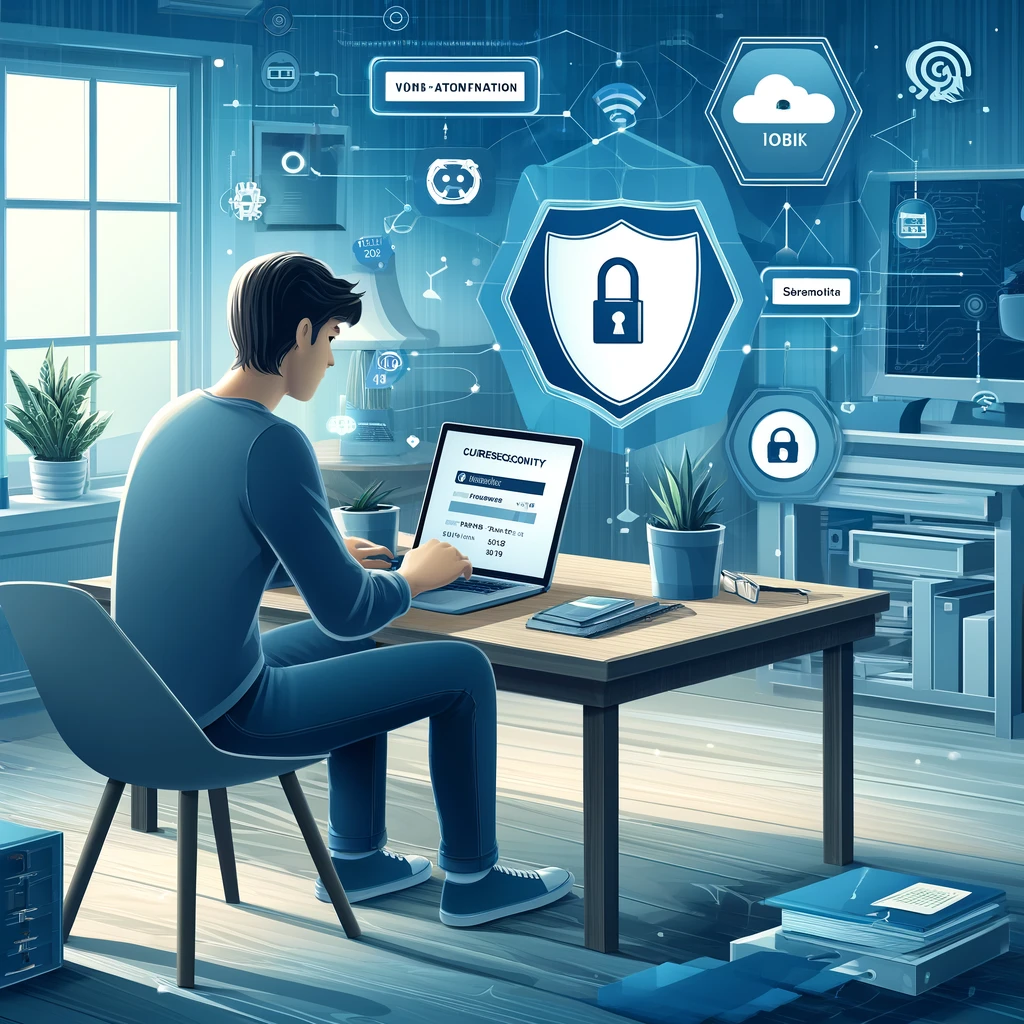The business landscape is continually evolving, fueled by rapid technological advancements and the changing nature of work itself. Recent global events have pushed organizations to adopt remote work models at an unprecedented scale, significantly expanding their distributed workforces. While remote work offers numerous advantages, such as increased flexibility, cost savings, and access to a broader talent pool, it also poses unique cybersecurity challenges.
Ensuring a cyber-resilient remote workforce has become essential for organizations that strive to maintain robust cybersecurity postures in response to increasing digital threats. Protecting sensitive information and maintaining the integrity of digital infrastructures plays a crucial role in a business’s success, especially in a distributed work environment. It’s more important than ever for companies to understand the risks associated with remote work and implement effective cybersecurity strategies to safeguard their critical assets and operations.
Understanding the Risks and Challenges of Securing Remote Workforces
To implement effective cybersecurity measures for your remote workforce, first, understand the unique risks and challenges associated with dispersed teams. Common risks associated with remote work environments include:
1. Insecure Network Connections: Remote employees may use unsecured Wi-Fi networks to access company data and systems, exposing critical information to potential cyberattacks.
2. Phishing Scams and Social Engineering: Remote workers may be more susceptible to phishing scams and social engineering attacks, as they often rely heavily on email and other online communication tools.
3. Endpoint Security: Securely managing multiple devices, including laptops, smartphones, and tablets, can pose a challenge for organizations, as these devices represent potential entry points for cyber threats.
4. Shadow IT and Unauthorized Applications: Remote employees may use unauthorized applications and cloud services to accomplish their tasks, circumventing your organization’s security policies and creating vulnerabilities.
Strategies for Enhancing Your Remote Workforce’s Cybersecurity
Now that we’ve identified the primary risks and challenges of securing remote workforces let’s discuss strategies and best practices to combat these threats effectively:
1. Implement Endpoint Security Measures
Securing endpoint devices, such as laptops, smartphones, and tablets, is critical to protecting your organization’s data and network. Implement the following measures to strengthen endpoint security:
– Regularly update and patch software to address known vulnerabilities
– Install robust antivirus and anti-malware software
– Enable data encryption on endpoint devices
– Monitor devices for unauthorized access or usage patterns
– Create and enforce a strict Bring Your Own Device (BYOD) policy
2. Ensure Secure Remote Network Access
To protect network connections for remote employees, consider the following strategies:
– Utilize Virtual Private Networks (VPNs) for a secure remote connection
– Employ multi-factor authentication (MFA) for accessing company networks and systems
– Implement Network Access Control (NAC) solutions to manage and restrict network access
– Ensure Wi-Fi security best practices, such as using a strong password and enabling WPA2 or WPA3 encryption
3. Bolster Employee Training and Cybersecurity Awareness
Educate your remote workforce on the potential cyber threats they may face and the crucial role they play in safeguarding your organization’s digital assets. Implement an ongoing cybersecurity awareness and training program covering topics like:
– Recognizing phishing scams and social engineering attempts
– Complying with company policies for remote work and device usage
– Using secure networks and strong passwords
– Reporting suspected cybersecurity incidents promptly
4. Promote Corporate Security Culture and Collaboration
Promote a corporate culture that embraces cybersecurity as a shared responsibility across your entire organization. Encourage collaboration among remote teams and IT departments, which can help proactively identify potential security risks and implement security measures effectively. Some measures to foster a cybersecurity culture include:
– Regular communication about cybersecurity updates, threats, and best practices
– Creating avenues for employees to provide input and feedback on security policies and procedures
– Hosting webinars or virtual workshops on emerging cybersecurity trends and technologies
Embracing Technologies for Securing Remote Workforces
Leverage available technologies to enhance remote workforce cybersecurity further. Examples of technologies playing a pivotal role in securing distributed teams include:
1. Endpoint Detection and Response (EDR) Tools: Deploy EDR solutions that continuously monitor endpoint devices, enabling rapid detection and response to potential security threats.
2. Cloud Security Solutions: Implement Cloud Access Security Broker (CASB) or other cloud security platforms to monitor and manage data access and activities within cloud-based applications.
3. Data Loss Prevention (DLP) Tools: Utilize DLP software to detect and mitigate the risk of unauthorized data transfers or data breaches.
4. Incident Management and Collaboration Platforms: Employ platforms that provide centralized management and tracking of security incidents to streamline communication and response efforts among distributed teams.
Conclusion
Building a cyber-resilient remote workforce is crucial for organizations looking to thrive in a world increasingly dependent on digital technology and remote work. By recognizing and addressing the unique challenges of securing remote workforces, implementing strategic measures, and leveraging available technologies, your organization can maintain robust cybersecurity postures and protect sensitive data and systems in a competitive and dynamic digital landscape.
Partner with us to ensure your remote workforce remains secure against evolving cyber threats. Our experienced team at The Saturn Partners can provide expert guidance, customized cybersecurity services, and ongoing support tailored to your organization’s needs. Reach out today, and discover how we can help secure your remote workforce, safeguard your digital assets, and promote your organization’s overall cybersecurity resilience.

